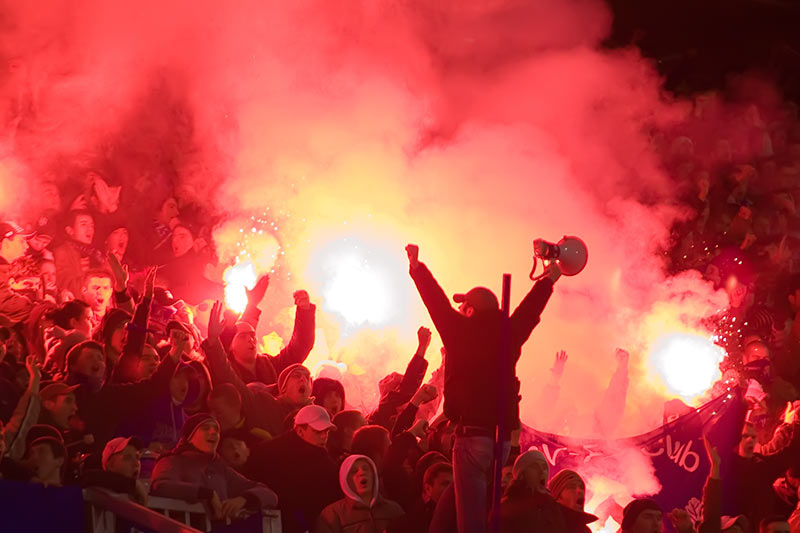Want to buy pyrotechnics? Visit pyro.ultras-tifo.net

Football fans are the lifeblood of the sport, infusing matches with passion, energy, and unwavering loyalty. Beyond their vocal support in the stands, fans possess a remarkable power to influence the decisions and policies of their beloved clubs. In a sense for the teams the fans are like a jackpot hit in Blackjack online. This article delves into the ways in which fan power has shaped the landscape of soccer, exploring the historical significance, modern methods, and notable examples of supporter influence on club governance.
1. The Historical Significance of Fan Power
Throughout football's history, fan power has played a pivotal role in shaping clubs' decisions. In the early 20th century, fan protests led to the establishment of democratic fan ownership models, such as FC Barcelona and FC Bayern Munich. These clubs gave supporters a voice in important decisions and fostered a sense of community ownership. Fan influence also brought about changes in ticket pricing, stadium development, and player transfers, reflecting the importance of fan opinions in club affairs.
2. Modern Methods of Fan Influence
In the digital age, fans have found new avenues to express their opinions and exert influence on clubs. Social media platforms, online forums, and fan-led websites provide spaces for open dialogue and collective action. Petitions, organized boycotts, and fan surveys allow supporters to voice their concerns and demand change. Supporters' trusts and fan representatives now participate in club board meetings, ensuring that fan interests are represented at the highest levels of decision-making.
3. Fan Protests and Demonstrations
Fan power often manifests itself in the form of protests and demonstrations, drawing attention to critical issues within clubs. Supporters have utilized various tactics, such as marches, banners, and stadium walkouts, to express their discontent and demand accountability. These protests have targeted a range of issues, including ownership disputes, mismanagement, ticket prices, and lack of investment in the team. Notable examples include the Green and Gold campaign by Manchester United fans and the "Against Modern Football" movement that emerged in response to commercialization and sky-high ticket prices.
4. Boycotts and Financial Impact
One of the most impactful ways fans exert their power is through boycotts and withholding financial support. Fans have demonstrated their discontent by abstaining from attending matches, refusing to purchase club merchandise, or canceling subscriptions to broadcasting services. These actions, when coordinated on a large scale, can significantly impact a club's revenue streams. The financial consequences of fan boycotts can force clubs to listen and reconsider their decisions, prompting them to engage with supporters and address their concerns.
5. Supporter-Club Collaboration
Some clubs have embraced fan power by actively seeking collaboration with supporter groups. Engaging fans in decision-making processes through structured dialogue and fan representatives fosters a sense of inclusivity and strengthens the relationship between clubs and supporters. Examples of successful collaboration include Borussia Dortmund's "Yellow Wall" initiative, where fans are consulted on important matters, and Athletic Bilbao's unique model that prioritizes local talent and fosters a strong bond with the community.
6. Impact on Policies and Social Issues
Fan power extends beyond club-related decisions and often influences broader policies and social issues. Supporters have been instrumental in pushing for changes in areas such as anti-racism initiatives, LGBTQ+ inclusion, and sustainable practices within the sport. Through collective action and advocacy, fans have compelled clubs and governing bodies to address these important societal concerns, leveraging their influence to create positive change beyond the confines of the pitch.
In conclusion, football fans possess an incredible power to influence the decisions and policies of their clubs. Whether through historical precedents, modern methods of engagement, protests, or boycotts, fans have demonstrated time and again that their voices matter. The influence of supporters on club governance highlights the evolving relationship between clubs and their fan bases, emphasizing the importance of fostering open dialogue, inclusivity, and collaboration. As the beautiful game continues to grow and evolve, fan power remains an integral force that drives positive change within football.














